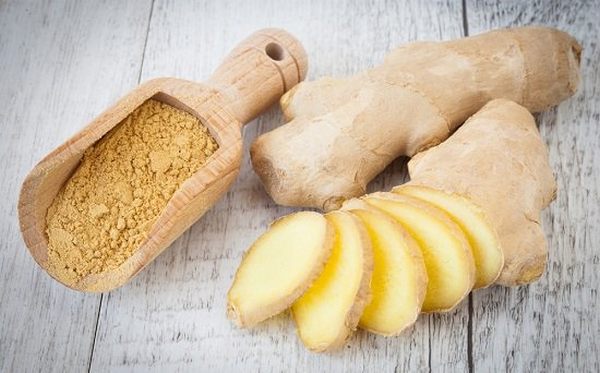By intestinal flu we mean a viral disease that creates annoying symptoms in the stomach and intestines. It is actually what is known in medical terms as viral gastroenteritis, a very widespread and frequent problem especially in children. So let's take a closer look at the remedies to use and what to eat in case of intestinal flu.
Don't store avocado like this: it's dangerous
intestinal flu it means a disease of origin viral which creates annoying symptoms in the stomach and intestines. It is actually the one known in medical terms as viral gastroenteritis, a very widespread problem e frequent especially in children. Let's take a closer look then the remedies to use and what to eat in case of intestinal flu.
The causes ofintestinal flu (which has nothing to do with normal flu) are due to the presence in the body of a virus. In most cases it is the Rotavirus, very common especially in children, but can also be caused by other strains such as: norovirus, adenovirus, sapovirus e astrovirus.
Read also: INTESTINAL INFLUENZA: 5 USEFUL TIPS FOR ADULTS AND CHILDREN
Since i symptoms of gastroenteritis viral are very similar to those of other types of gastrointestinal problems it will be the doctor's responsibility to evaluate case by case what caused the appearance of diarrhea and vomiting (to diagnose the presence of the virus it is necessary to analyze the feces).
Index
SYMPTOMS
I symptoms of intestinal flu they mainly affect the stomach and intestines. It is therefore about diarrhea, vomiting, abdominal cramps and nausea. However, general malaise, fever, loss of appetite and, if you are not careful, can also appear reintroduce liquids, you may find yourself struggling with a situation of dehydration very dangerous especially for children, the elderly or people suffering from previous diseases.
Read also: VOMITING: CAUSES AND ALL THE REMEDIES TO REDUCE IT
These symptoms, which may not appear all together, they generally resolve within a few days but in cases where the virus that attacked the body is very strong or the immune defenses are weak, it can last for a week or more. As for theincubationInstead, this lasts a few days from the moment of the infection.
La dehydration is undoubtedly the risk and the most dangerous complication gastroenteritis mainly due to frequent diarrhea but also to poor absorption of nutrients that can lead to the presence of the virus.
The symptoms that allow us to recognize the intestinal flu are therefore:
• Diarrhea
• He retched
• Abdominal pains
• Nausea
• Fever
• General malaise
• Loss of appetite
• Dehydration (in rare cases if you are unable to replenish fluids well)

REMEDIES
There are no specific treatments for intestinal flu since in most cases it disappears spontaneously within a few days. Surely antibiotics should never be used as it is a viral and not a bacterial infection. Let's see some remedies that can relieve symptoms and increase the body's resilience.
Drink a lot of water
Especially if the intestinal flu has affected children or the elderly, it is important to make the patient drink plenty of water, since diarrhea and vomiting cause a large amount of water to be lost. If it is difficult, it is good drink in small sips.
probiotics
To help the intestine recover, it may be useful to take probiotics, good bacteria that repopulate the intestinal bacterial flora. There are some strains that are more suitable in case of gastroenteritis, ask for advice at a pharmacy or herbalist's shop.
Rest
To recover sooner, it is good ensure proper rest as vomiting and diarrhea can make you particularly weak. So staying at home and enjoying a little relaxation even during the day can be a simple way to get the body started again.

Ginger
As with so many other gastrointestinal problems, ginger is undoubtedly the number one remedy. This root relieves nausea and vomiting if chewed in small quantities or taken in the form of herbal tea.
Lemon
It can also be added to ginger a little lemon juice but even alone this natural remedy can be useful in stopping diarrhea and positively influencing the work of the entire digestive system. So help your healing with a cup of water and lemon or water, ginger and lemon.
Read also: WATER AND LEMON: 10 HEALTH BENEFITS
To be tested therefore in the case of intestinal flu are:
• Plenty of water
• Probiotics
• Ginger
• Lemon
• Rest
WHAT TO EAT IN CASE OF INTESTINAL INFLUENZA
Initially it is good to let the body purify itself by avoiding drinking and eating for a few hours from the onset of symptoms, immediately afterwards it is obviously important to replenish liquids and nutrients.
Dry foods
Especially in case of vomiting it is recommended to eat dry foods as they can be rusks, crackers, etc. in small portions paying attention to the effect they have on the situation.
Light foods
Light foods such as pasta, rice and potatoes simply seasoned with oil. Among the most suitable fruit there are undoubtedly the bananas since they help to recover lost mineral salts but also to absorb intestinal fluids.

Anti diarrhea foods
Choosing certain beneficial foods can help make diarrhea more bearable and shorten the course. Obviously, the body's reactions to food can vary from person to person. It would be good to prefer aliments such as apples, garlic, oats and others that we have listed for you here
Read also: DIARREA: 10 BENEFICIAL FOODS
It is therefore advisable to:
• Drink a lot (not only water but also tea and herbal teas)
• Choose liquid foods such as broth
• Rice and white pasta
• Bread
• Potatoes
• Bananas grow
• Garlic
• Avena
• Chicken or lean fish (if animal protein is consumed)
On the other hand, not recommended:
• Sweets and sugar
• Sweetened or carbonated drinks
• Caffeine
• Alcoholics
• Milk and dairy products
• Chocolate
• Fatty foods
• Fried
ONE FINAL ADVICE
Do not forget to call your doctor in case of:
• Diarrhea or vomiting that does not stop after two days
• Presence of blood in stool or vomit
• Persistent high fever
• Very severe abdominal pains
• Dizziness
• I know if you notice dehydration (very dry mouth and skin)


























